Noaa Barki
What we Learned from Reading 100+ Kubernetes Post-Mortems
#1about 6 minutes
Understanding the developer versus DevOps cultural divide
A story from a DevOps meetup illustrates the different goals and perspectives that create friction between developers and operations teams.
#2about 2 minutes
Bridge the gap with champions and failure stories
Delegate knowledge to developer champions and learn best practices by studying the post-mortem stories of other companies.
#3about 5 minutes
Common Kubernetes misconfigurations from real outages
Examples from Target and Zalando show how simple errors like incorrect CronJob concurrency policies or missing memory limits can cause major production failures.
#4about 3 minutes
How to introduce policy enforcement gradually
Avoid organizational friction by implementing new policies slowly, starting with a single pilot team to gain agreement and understanding before a wider rollout.
#5about 3 minutes
Categorizing the three types of Kubernetes failures
Kubernetes failures typically fall into three categories: simple syntax errors, gaps in knowledge of best practices, and misalignment with internal company policies.
#6about 2 minutes
Validating Kubernetes YAML for syntax and schema errors
Use tools like yq for YAML format validation and kubeconform for schema validation without requiring direct cluster access for developers.
#7about 4 minutes
The challenges of managing policies as code in Git
Managing policies in Git creates versioning nightmares and lacks features for permissions, dynamic adjustments, and providing clear remediation guidelines.
#8about 4 minutes
Using Datree for centralized policy management
Datree is an open-source tool that provides a centralized location for managing policies, which are then enforced locally and in CI for developers.
#9about 1 minute
The real meaning of shifting responsibility left
True shift-left culture is not just about tools but about delegating responsibility and empowering developers to own their configurations.
Related jobs
Jobs that call for the skills explored in this talk.
Team Lead DevOps (m/w/d)

Rhein-Main-Verkehrsverbund Servicegesellschaft mbH
Frankfurt am Main, Germany
Senior
Featured Partners
Related Videos
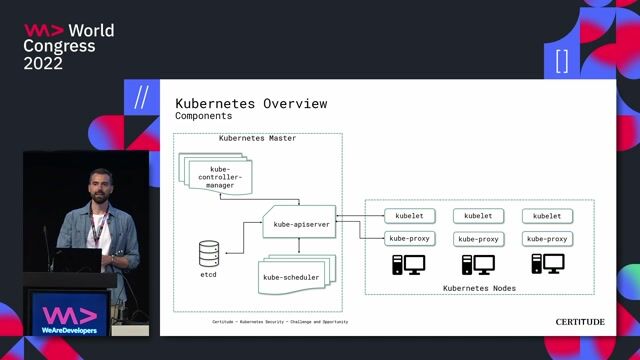 42:45
42:45Kubernetes Security - Challenge and Opportunity
Marc Nimmerrichter
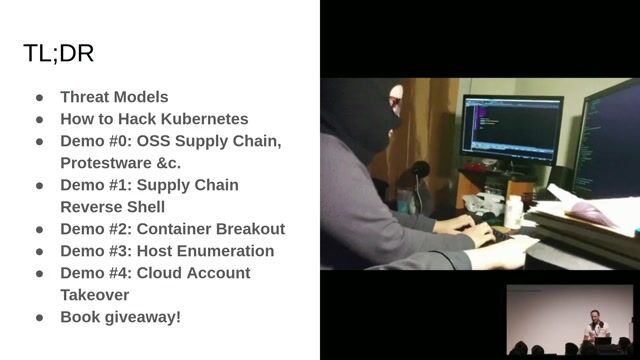 46:36
46:36Hacking Kubernetes: Live Demo Marathon
Andrew Martin
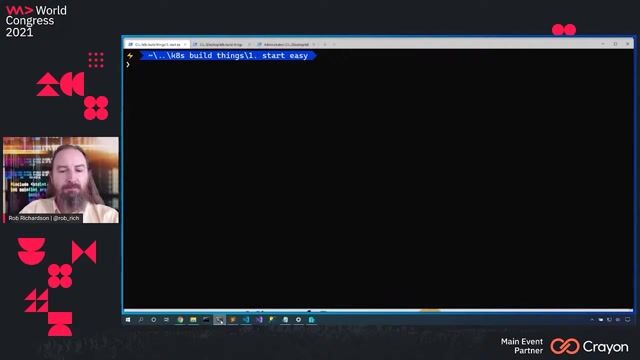 40:00
40:00Local Development Techniques with Kubernetes
Rob Richardson
 50:23
50:23Retooling and refactoring - an investment in people.
Andrew Holway
 27:52
27:52Chaos in Containers - Unleashing Resilience
Maish Saidel-Keesing
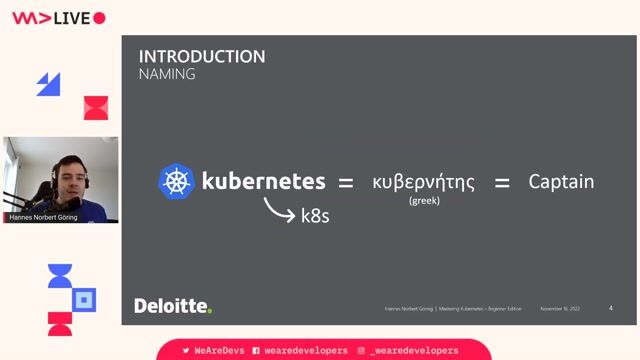 57:24
57:24Mastering Kubernetes – Beginner Edition
Hannes Norbert Göring
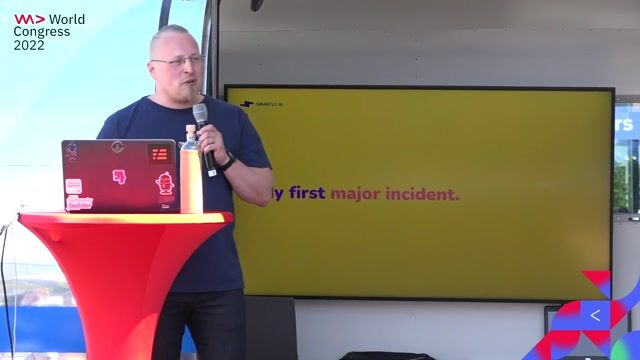 26:18
26:18I broke the production
Arto Liukkonen
 29:21
29:21Kubernetes Maestro: Dive Deep into Custom Resources to Unleash Next-Level Orchestration Power!
Um e Habiba
From learning to earning
Jobs that call for the skills explored in this talk.


DevOps Engineer – Kubernetes & Cloud (m/w/d)
epostbox epb GmbH
Berlin, Germany
Intermediate
Senior
DevOps
Kubernetes
Cloud (AWS/Google/Azure)
Devops Expert - kubernetes / Go / Datadog
ASFOTEC
Canton de Lille-6, France
Remote
Intermediate
Azure
DevOps
Python
Grafana
+3
DevOps Engineer | Terraform · Jenkins · Docker · Kubernetes
knowmad Mood
Barcelona, Spain
CSS
IIS
GIT
.NET
YAML
+21
DevOps Engineer | Terraform · Jenkins · Docker · Kubernetes
knowmad Mood
Municipality of Madrid, Spain
CSS
IIS
GIT
.NET
YAML
+21
DevOps Engineer (Kubernetes \/ Linux)
Rocken AG
Hägglingen, Switzerland
Linux
DevOps
Docker
Kubernetes
Load Balancing

